- Home
- Nantucket
- Courses & Opportunities
- Workshops
Field Skills Workshops
A field station is a tremendous resource, and one way to visit and use the station is to attend a workshop. Ongoing biodiversity and environmental projects in different habitats provide year-round opportunities. Participants learn while contributing to a census or environmental monitoring and experience being part of a field science team to conduct field work which may also include laboratory time and data handling. It starts with a lecture and overview of the project but tours Nantucket too!
Our first winter workshop started off New Year's Eve, with a small group learning how to census birds through participating in the Nantucket Christmas Bird Count. Our next workshop is very different and takes place during spring break for those looking for an alternative spring break activity. Participants will be learning how to survey the spring intertidal life on the station beach. Both workshops are a type of census, but the Christmas bird count takes place all over the world and is an impressive long term Audubon bird census.
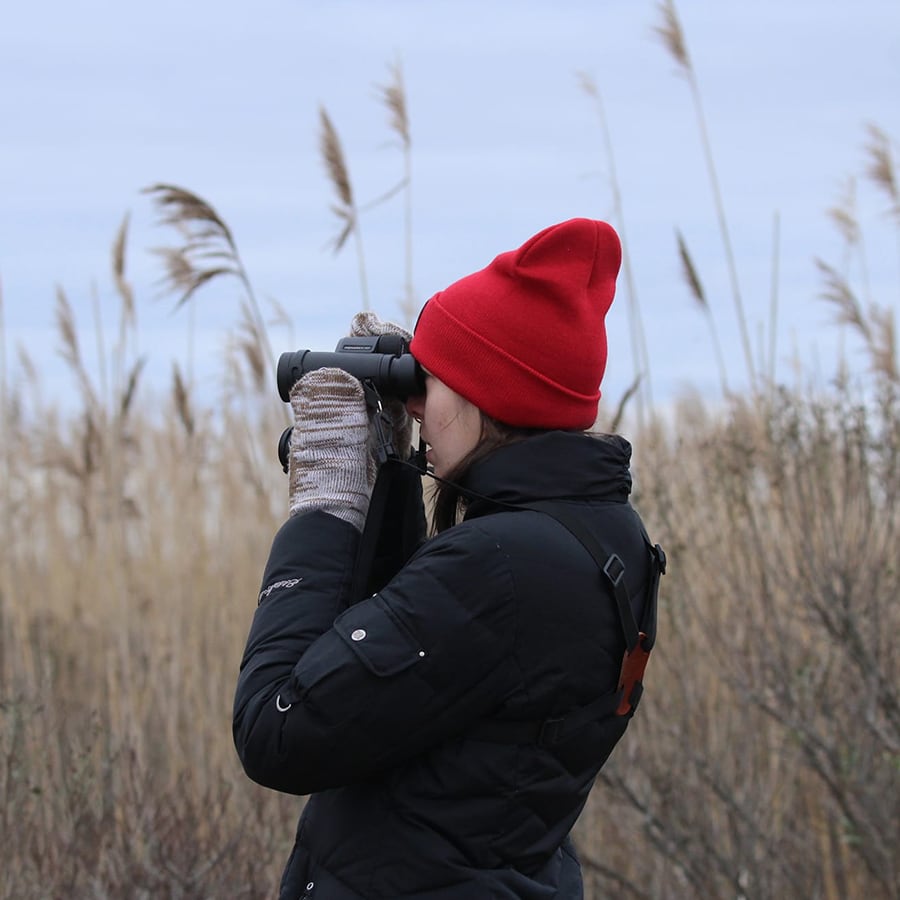
Bird Count Workshop Participant Hannah Vered.
Nantucket takes the Christmas Bird Count quite seriously and our students had a wonderful time contributing to the count of all bird species seen on December 31st. They learned how the census is coordinated, carried out and compiled. We spent the first day going over how it works, the history of the bird count and the island particulars. We then scouted our property and birded in preparation for the count day. One the count day itself our small group split up between covering the station grounds and going to help bird where needed where volunteers were few and a lot of space had to be covered in remote areas.
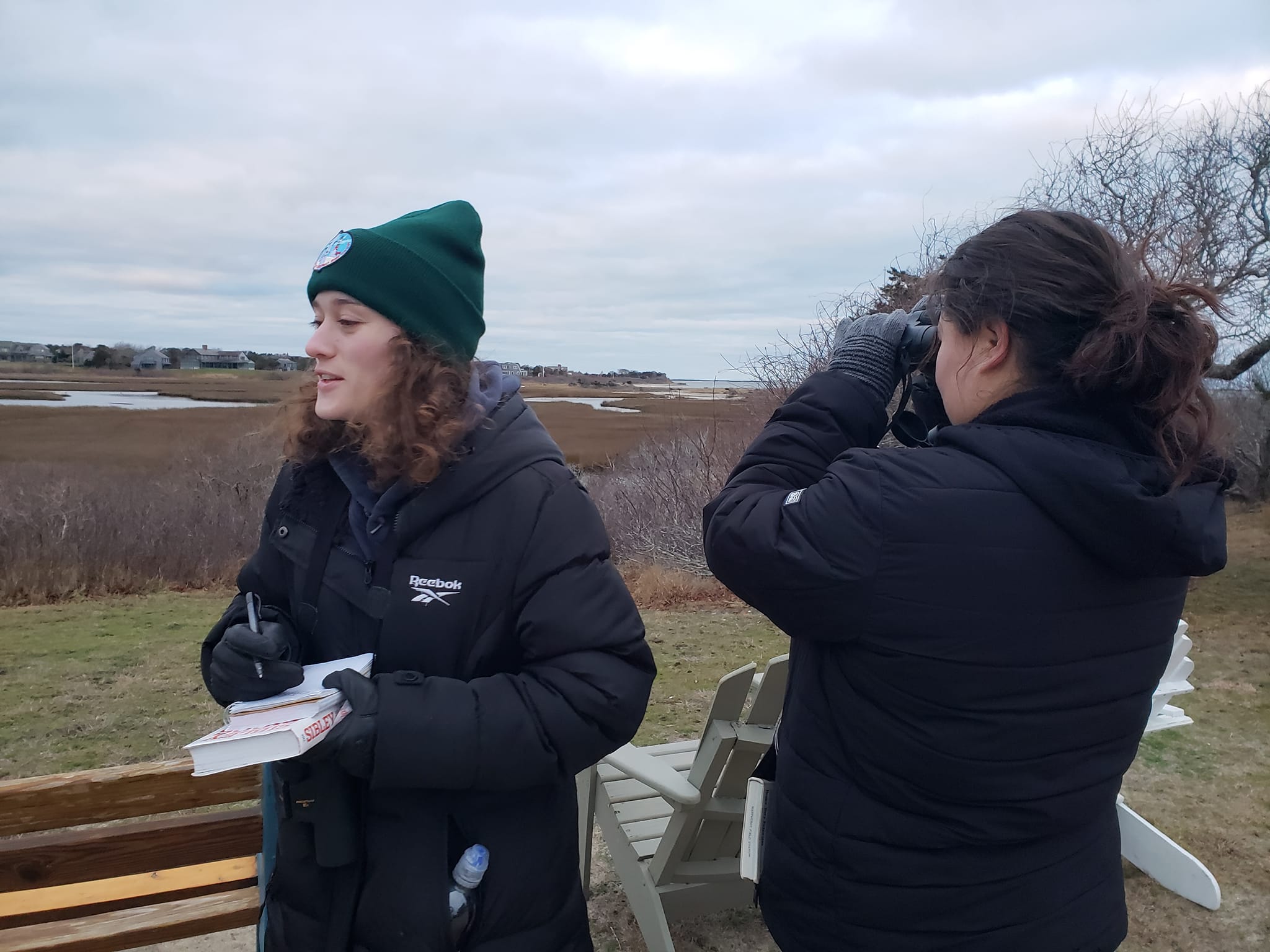
Bird Count Workshop Participants Emma Meschino and Anh Le (station intern).
The end of count day compilation traditionally takes place at the UMass field station, in the conference room, so our students did not have to go anywhere to see how the groups come together to compile the data. The island is divided into 8 sections, each has a captain in charge of birding their section. At the end of the night about 45 people met at the station to compile the results. It was a great learning experience but also a fun way to start the New Year!
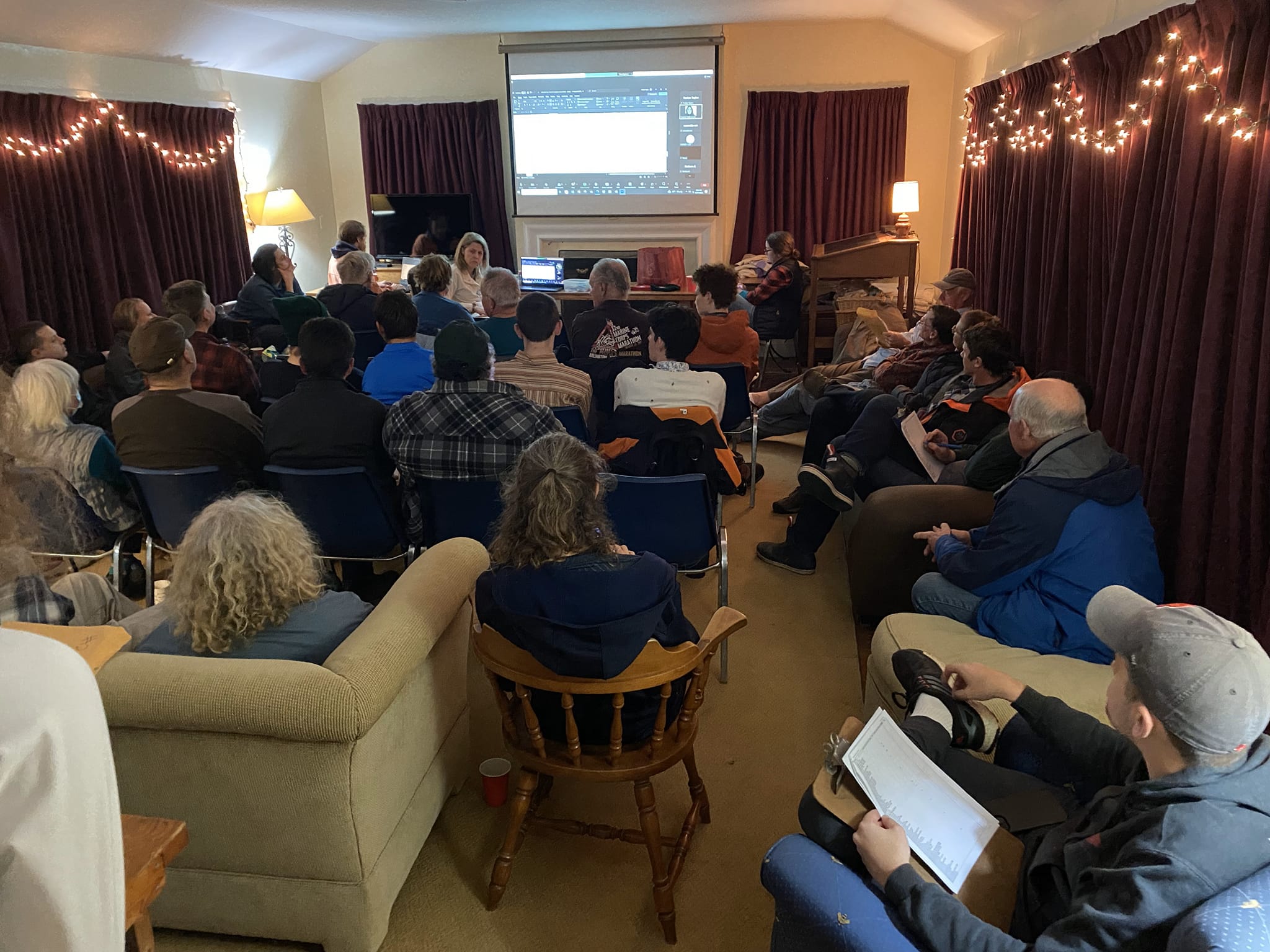
Nantucket Christmas Bird Count Compilation Meeting. Photo by Patrick Dugan
In 2023 the National Audubon Society was celebrating the 124th year of the Christmas Bird Count program and it was Nantucket’s 69th year of participating in it. Though the final results take a few days to compile and double check, the preliminary results were that over 70 volunteers counted 128 species and 83,626 individual birds on Dec 31st 2023.
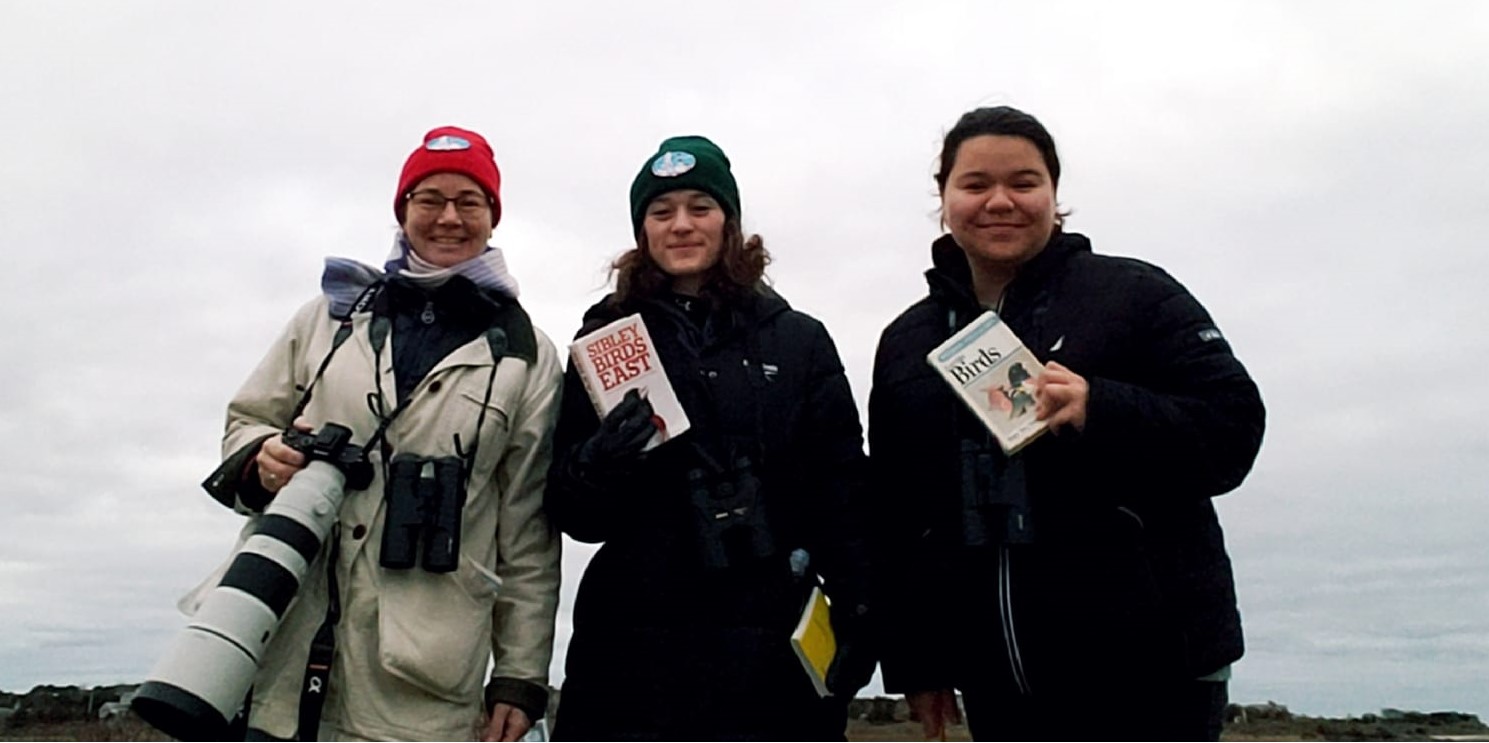
Station Director Yvonne Vaillancourt, UMB students Emma Meschino and Anh Le (station intern).
Spring Intertidal Survey Workshop
Our March 2024 workshop introduces students to intertidal survey methods which translate to many other habitats. We will set up to generate 1,100 data points representing our cobble beach and what lives there. Algae, snails, mussels, limpet and more!
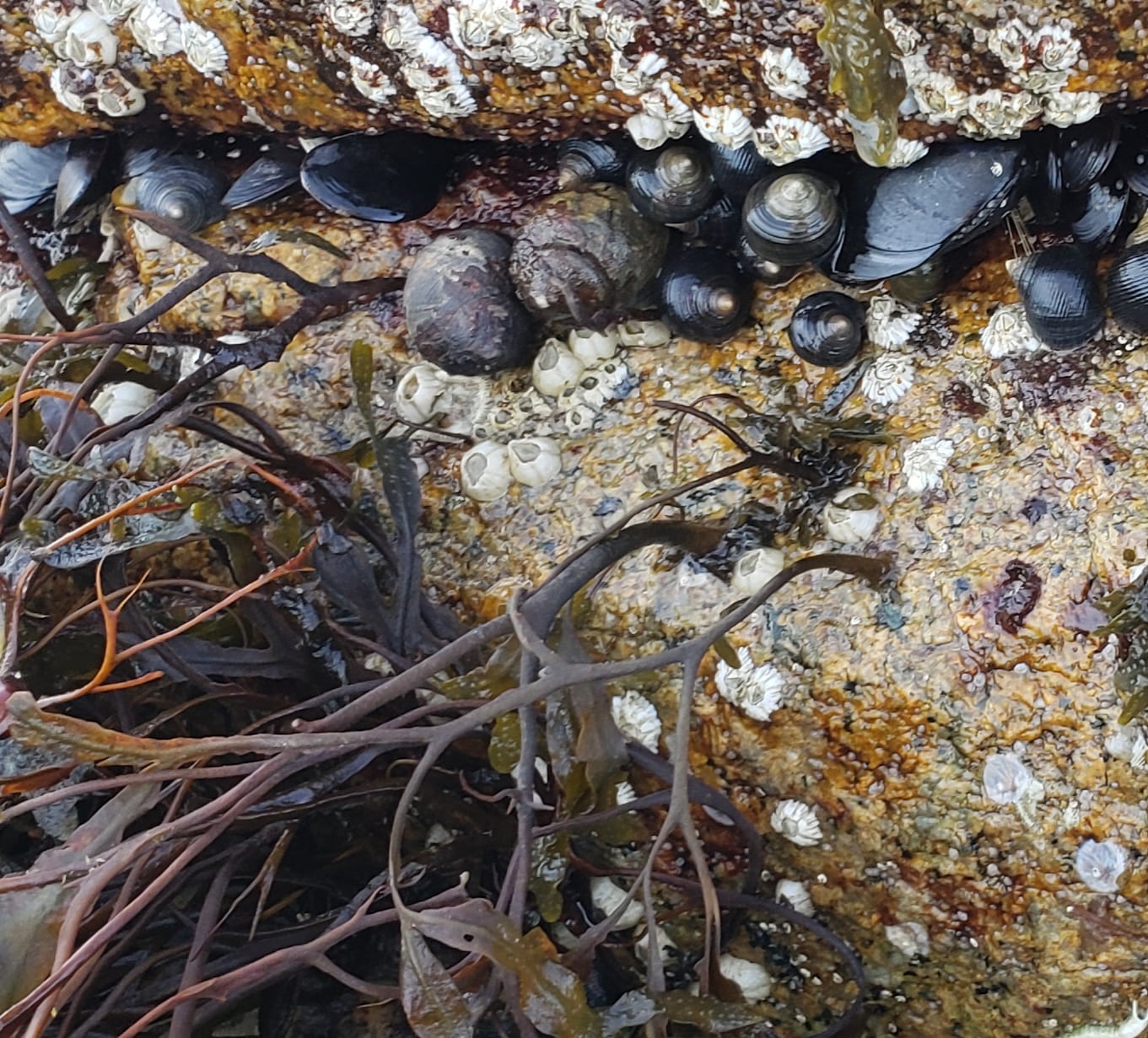
Students help set up the transects and photo plots to be used seasonally to monitor what is living on our cobble beach. We will also record the profile of the beach, how step it is as you walk towards the water. What we find we identify, count and log. Similar types of workshops will run in the marsh and in the eelgrass beds later in the year.
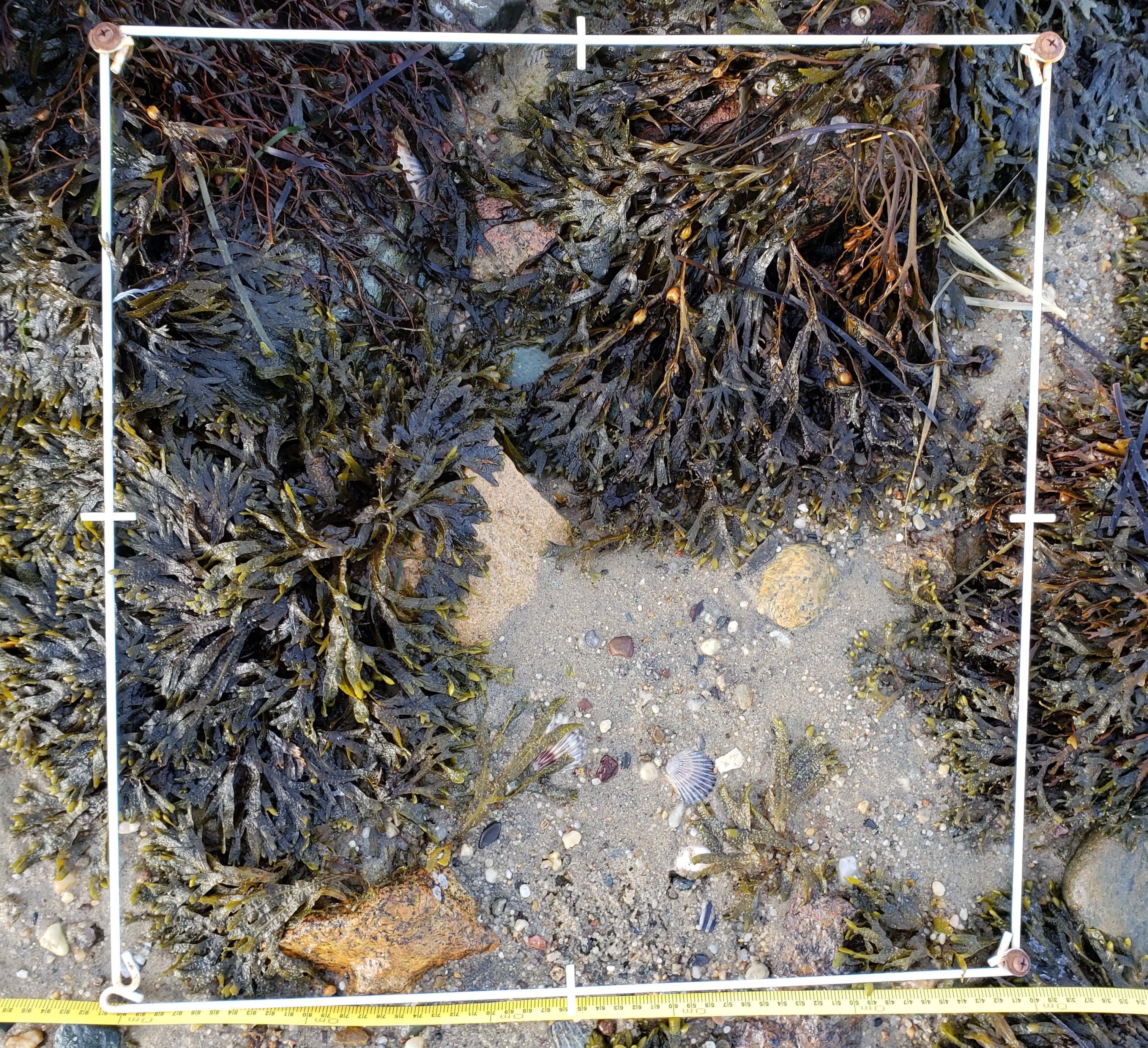
If you are interested in any of these types of workshops or learning about other projects, contact the director, Yvonne Vaillancourt. Workshops are a great way to gain experience in the field, in the lab and with experimental set up. You spend a lot of time outside immersed in the environment and leave learning a lot about the communities in those habitats. There is a fee for workshop participation and cost varies with number of overnights.